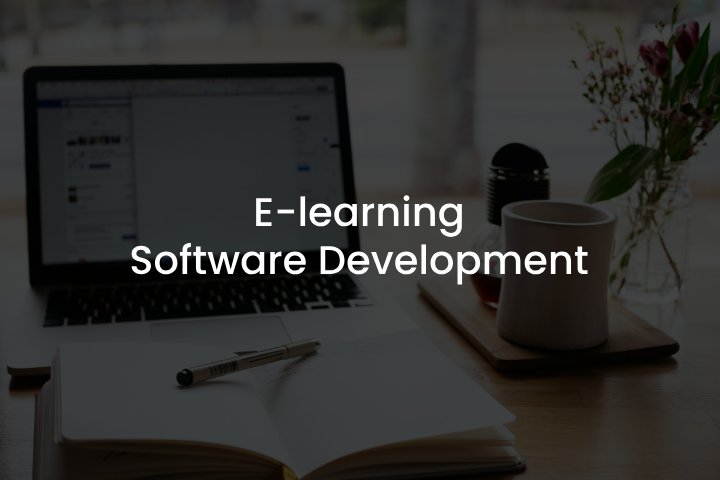
Outsourcing Your E-learning Platform Development
E-learning solutions have emerged as indispensable tools for imparting knowledge and skills across diverse industries and demographics. However, to create an online learning platform that truly captivates learners and drives meaningful outcomes requires a multifaceted approach that seamlessly integrates custom software development and outsourcing. This synergistic combination unlocks a world of possibilities for e-learning providers, empowering them to deliver exceptional learning experiences that transform the way knowledge is acquired and shared.
In this article, we will discuss the main aspects of custom software development for creating engaging e-learning systems. Which benefits do outsourcing custom software development and why is it essential in this sector? Lastly, we review the Agiliway case study in developing a solution for Eastern European higher education institutions.
Key Aspects of Custom Development for Engaging UX
At the heart of a successful e-learning platform lies a seamless user experience. Outsourcing custom software development plays a pivotal role in creating an intuitive and user-friendly interface that captivates learners and drives engagement. By investing in custom development, e-learning providers can ensure that their platform aligns seamlessly with their specific learning goals and target audience.
Firstly, the platform should offer clear and straightforward navigation, allowing learners to easily find the courses, resources, and tools they need.
Secondly, a visually appealing interface engages learners and enhances the learning experience. Consider using high-quality graphics, animations, and color schemes that align with the platform’s brand identity.
Thirdly, the system should be accessible to learners with diverse needs, including those with visual impairments or physical limitations. Incorporate functionalities such as support for screen readers and alternative text for images.
Benefits of Outsourcing E-learning Software Development
While custom software development provides a tailored solution, e-learning providers may not have the in-house resources or expertise to handle the entire development process. This is where outsourcing plays a crucial role. Outsourcing to experienced development teams can provide access to specialized skills, scalability, and cost-effectiveness.
- 1. Skilled Talent-Pool
Provides access to experienced developers with expertise in e-learning technologies and platforms. The vendor will likely possess prior experience in developing comparable projects, thus enabling them to provide guidance and solutions aimed at enhancing the functionality of your product.
- 2. Reduce Resourcing Difficulties
If you already have a full-time e-learning developer on staff, consider outsourcing to enhance productivity when your team is at capacity. Engaging an external vendor may let you scale up your development as needed by supplementing your team without adding more workers. This leads to significant cost savings in hiring an offshore development team compared to in-house development.
- 3. Lean Team
For businesses that have a small number of employees, outsourcing the production of their eLearning material is a fantastic approach to take. Relying on internal resources to fit more deliverables into an already full plate may result in inefficiency and a decline in quality. This is because your in-house team may be unable to produce more material within a certain time frame.
- 4. Flexibility and Creativity
Outsourcing e-learning content development to strategic partners allows for the freedom and creativity to experiment with different types of material (texts, audio, videos, or other content formats).
- 5. Saves Time Across Time Zones
Contracting eLearning creation to a provider located in a distinct time zone might considerably diminish development schedules. Feedback may be sent after your workday for an external team to collect and execute before you resume work in the morning.
Key Principles for Collaborative Success
E-learning providers should establish clear communication channels and expectations with their development partners to ensure that the platform aligns with their vision and goals.
- 1. Clear Requirements Definition: Clearly define the platform’s objectives, target audience, and desired features to ensure alignment between the provider and the development team.
- 2. Regular Communication: Foster open and regular communication throughout the development process to address any challenges or changes promptly.
- 3. Joint Testing: Collaborate closely during testing phases to ensure the platform meets the provider’s quality standards and user expectations.
Case Studies: Successful Examples of Outsourcing Custom Software Development for E-learning Platforms
One of the TOP higher education institutions in Eastern Europe required an innovative solution to assist its students in studying and preparing for their yearly exams, regardless of their location. Students can engage with the educational material by reading, listening, and practicing when they are on route to courses, taking a walk in the park, or remaining at home.
The objective was to increase students’ access to learning opportunities and bring attention to the need for inclusive education by developing digital textbooks, not to replace printed ones. Because of this, the solution now has audio and reading options, which are even better than the printed version.
Though the development of the platform was resolved the next challenges:
- cut down on the size of the electronic copies;
- enabled additional testing after material coverage through the configuration of files;
- performed audio file resizing and establishing a cloud-to-device connection.
The Agiliway development team, possessing pertinent expertise in e-learning, constructed a complex solution encompassing reading documents, audio renditions of selected books, and an intelligent question-and-answer system compatible with iOS and Android platforms.
The utilization of the platform confers benefits to educational institutions and users alike. Students appreciate its usability and constant accessibility. Additionally, it gained popularity among students who, for various reasons, are unable to utilize printed texts but recognize its value as an invaluable resource for academic progress.
Bottomline
In 2024, companies will increasingly use eLearning to improve employee development and training. As a result, outsourcing the creation of customized content is becoming a useful approach. Organizations may build personalized and impactful eLearning experiences that meet their unique requirements by using the knowledge and skills of external content production teams. Organizations may achieve success by outsourcing bespoke content production, which offers advantages such as cost-effectiveness, specialized expertise, scalability, and the opportunity to concentrate on core capabilities.
Elevate your e-learning platform to new heights by outsourcing custom software development. Discover how this strategic approach empowers businesses to create immersive and effective learning experiences.


